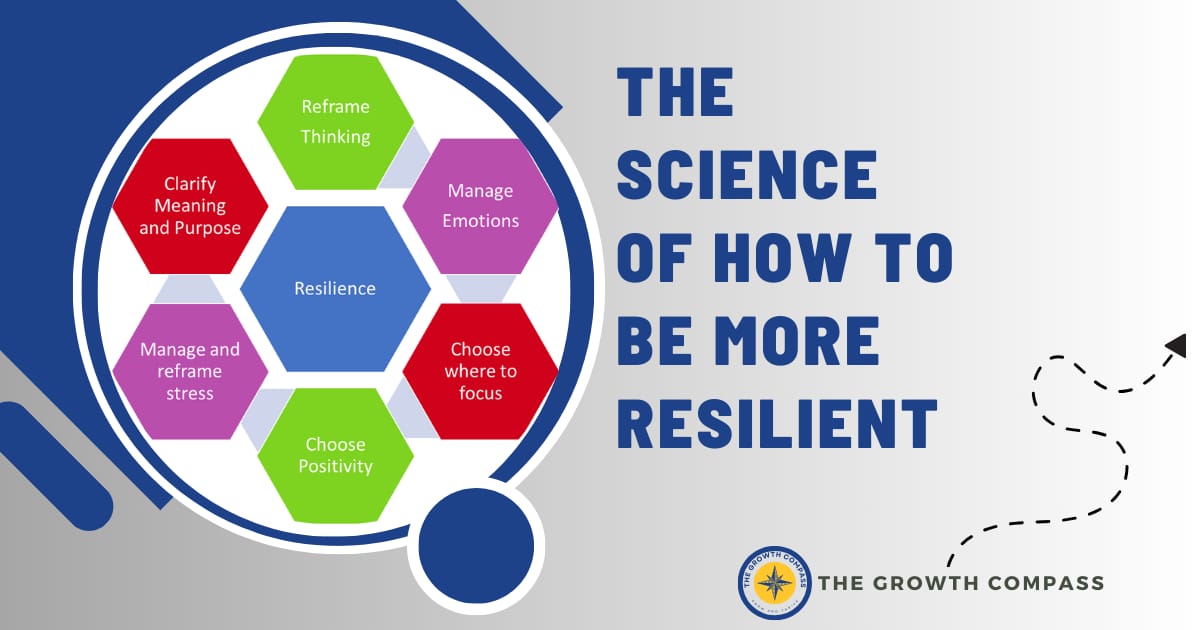
Good Day, and welcome to The Growth Compass!
⚠Reminder: We have given all subscribers access to our FREE Growth Compass Library that you can access HERE.

Here’s Where We Are Headed Today:
Napoleon Hill on Failure
How to Make Yourself and Your Team More Resilient
Favorite Posts I Found This Week
Free Mental Fitness Links 👇
Napoleon Hill on Failure
“Every adversity, every failure, every heartache carries with it the seed of an equal or greater benefit.” - Napoleon Hill

How to Prepare Resilience in Yourself and Others
Today, we're taking a deep dive into the topic of resilience and how to prepare yourself for resilience, building on my Friday post on X. I reframed crossing the chasm from a product-market fit conversation into how you move into the unknown and prepare yourself for the chasm. Chasm standing for:
Challenges
Hardships
Adversity
Setbacks
Mistakes
What to know: Resilience isn’t about avoiding any of those things in the chasm, it’s about how you respond to them. It’s your ability to adapt, recover, and even grow in the face of adversity. Preparation is key, and it starts with your mindset and habits.
Why it matters: Resilience is the cornerstone of long-term success, both for individuals and teams. When there is no struggle, there can’t be growth. Resilient people and organizations not only bounce back, they endure and come back stronger. Teams with a high degree of resilience stay focused under pressure, make fewer mistakes, and maintain motivation, even when the path ahead is unclear. For leaders, fostering resilience means you’ll have a team that can navigate the chasm and perform well, no matter the circumstances.
Ask yourself: If you couldn’t fail, what would you attempt? This mindset shift prepares you to tackle adversity, knowing that even failure becomes an opportunity for growth. It also becomes a guide on what you truly want in life.

What the science says:
Resilience can be developed in individuals: A study by Fred Luthans, published in Human Resource Development Review, showed that resilience can be developed through targeted HR strategies. The research found that employees with higher resilience recover faster from stress, leading to improved performance and well-being. By incorporating resilience training into organizational development, companies can boost adaptability and job satisfaction, enhancing both personal and professional outcomes. This highlights the critical role resilience plays in fostering long-term success.
How to build organizational resilience: This summary is based on the HBR article - Building Organizational Resilience. Organizations can increase resilience by utilizing three key approaches: routines, simple rules, and improvisation: A study based on a Mount Everest expedition, published in Organization Science, highlighted that successful teams alternate between these strategies depending on the context. The research found that routines work best in stable environments, while simple rules speed up decision-making in uncertain situations. Improvisation, on the other hand, is crucial for tackling unpredictable challenges. By teaching teams to adapt fluidly between these approaches, organizations can boost resilience, allowing them to navigate crises more effectively and improve overall performance. This underscores the importance of flexibility in fostering long-term organizational success.
What can we learn from this?
The importance of stability in who you are and what you want: Resilience starts with a clear understanding of your values and goals. When you know what you stand for and where you're headed, it's easier to navigate challenges and remain steady, even in the face of adversity. It also emphasizes the importance of your support system and environment
The ability to adapt - view stress for what it is: Recognizing stress as a part of growth allows you to handle it more effectively. By viewing obstacles as opportunities to develop, you're better equipped to manage pressure without letting it derail your progress.
Balancing consistency and flexibility: While having stable core principles is vital, resilience also requires the flexibility to adapt. Knowing when to stick to your plan and when to pivot is crucial for navigating changing circumstances successfully.
So what are the skills/habits that I need to think about to prepare to be more resilient?

View stress for what it is - Recognize that stress is a signal of growth. Instead of avoiding it, embrace stress as part of the process that leads to development and improvement.
Challenge yourself - Consistently put yourself in situations that push your limits. By facing difficulties head-on, you train yourself to become more adaptable and resilient in the face of adversity.
Work on your emotional regulation - Learn to manage your emotions, especially under pressure. Developing emotional intelligence allows you to stay calm, focused, and rational in challenging situations.
Prepare for obstacles - Anticipate difficulties and create strategies to navigate through them. Being mentally and physically prepared for setbacks helps you stay on track and bounce back faster when challenges arise.
Think learning, think growth, think progress - Cultivate a mindset that views every setback or challenge as an opportunity for personal and professional growth. Focus on making steady progress, even when faced with difficulties.
Favorite Posts I Found This Week
Free Mental Fitness Links 👇
That's a wrap for today. If you want to spread the joy, make sure to refer the newsletter to someone you think would benefit!
What'd you think of today's edition?
What I am reading and listening to:
Want More?
Feel free to view all of our FREE resources online here and our growing content library!
Interesting in advertising? Fill out this survey and we’ll get back to you soon!

